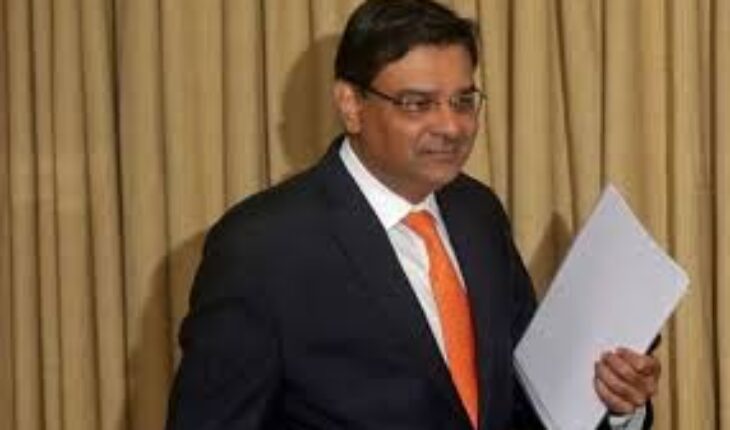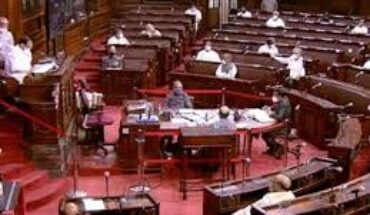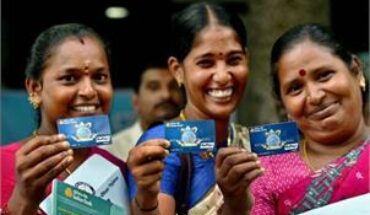Reserve Bank Governor Urjit Patel unexpectedly resigned on Monday, four days ahead of a crucial meeting of the board of the central bank that could have discussed issues of simmering differences with the government.
Patel, who is the first governor since 1990 to step down before his term ends, in a brief statement cited “personal reasons” for the decision that was effective immediately, media reports said.
The government seems to have accepted his resignation with Prime Minister Narendra Modi saying Patel will be missed “immensely”, reported PTI.
No announcement of Patel’s replacement has yet been made, the report said.
Patel’s three-year term was to end in September 2019 and he was eligible for a second term like most of his successors barring a few like his outspoken predecessor Raghuram Rajan, it added.
“On account of personal reasons, I have decided to step down from my current position effective immediately,” Patel was quoted as saying. “It has been my privilege and honour to serve in the Reserve Bank of India in various capacities over the years.”
The resignation came ahead of the December 14 meeting of the RBI Board where government representatives were expected to push the central bank to do more to ease a cash crunch by relaxing norms for lending to certain sectors so as to spur growth and create jobs ahead of 2019 general elections. They could also have pressed for transfer more of RBI’s excess capital to the government, the PTI report pointed out.
The opposition was quick to attack the government with former finance minister P Chidambaram saying “no self-respecting scholar or academic can work in this government”, it said.
Former RBI Governor and Patel’s immediate predecessor Raghuram Rajan reportedly said the resignation was something “all Indians should be concerned about because the strength of our institutions is really important for our growth, sustainable growth and equity in the economy”.
A Kenyan national who acquired an Indian citizenship prior to being appointed Deputy Governor of RBI in January 2013, Oxford-trained Patel was initially seen as toeing government line after he backed the November 2016 shock decision to overnight junk 86 per cent of the currency in circulation.
Since then, he has waged a war to get the struggling banking system in order and punish defaulting borrowers, reported PTI.
For last few weeks, he seemed to have been at loggerheads with the finance ministry on matters ranging from the appropriate size of the reserves the central bank must hold to the easing of lending norms for sectors such as small and medium enterprises, the report said.
The differences came out in the open when Deputy Governor Viral Acharya, in a hard-hitting speech in October, talked about the independence of the central bank, arguing that any compromise could be “potentially catastrophic” for the economy, it added.
“Dr Urjit Patel is an economist of a very high calibre with a deep and insightful understanding of macroeconomic issues. He steered the banking system from chaos to order and ensured discipline. Under his leadership, the RBI brought financial stability,” the Prime Minister wrote on Twitter. “He has been in the Reserve Bank of India for about 6 years as Deputy Governor and Governor. He leaves behind a great legacy. We will miss him immensely.”
Finance Minister Arun Jaitley separately thanked Patel via Twitter for his services. “The Government acknowledges with a deep sense of appreciation the services rendered by Dr Urjit Patel to this country both in his capacity as the Governor and the Deputy Governor of the RBI. It was a pleasure for me to deal with him and benefit from his scholarship,” he tweeted.
RSS ideologue and an independent director on RBI board S Gurumurthy, who had been leading the charge for RBI parting with his surplus funds to help the government meet its revenue targets, described Patel’s resignation as a setback to the convergence that the central bank and the government were reaching on contentious issues. “Surprised at the news that RBI governor has resigned,” he said in a tweet.
The last meeting of the RBI Board on November 19 was held in “such cordial atmosphere” that the resignation comes as a “shock”, he said. “I enjoyed several hours of personal discussions with him where we found large areas of agreement as well as mutually understandable disagreement. His resignation is indeed setback to the effects of the convergence of views that was taking place. We will miss him,” he said.
An expert committee to study the issue of the appropriate size of reserves was decided to be formed at the November 19 meeting but the panel is yet to be formed reportedly due to differences over who should head the committee.The next board meeting is supposed to discuss governance issues.






